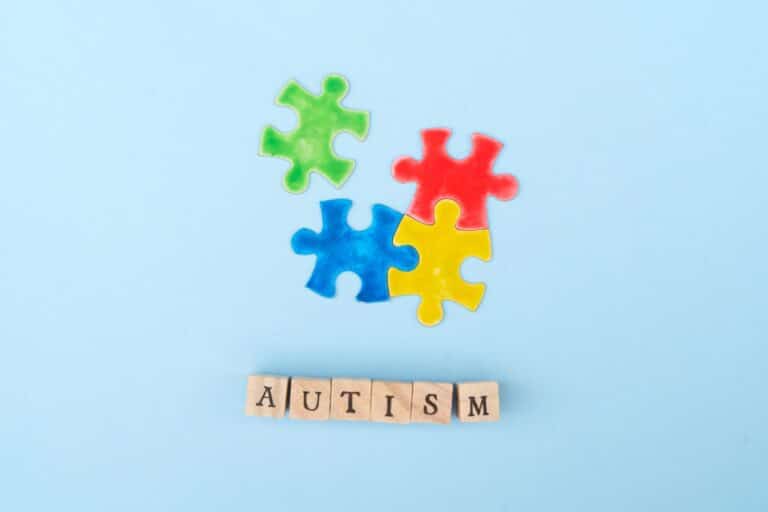Depressants are a type of drug that slow down brain activity, leading to relaxation, sedation, and a decrease in anxiety. Common examples of depressants include alcohol, benzodiazepines, and sleeping pills. But where does weed fit into this classification? Is it a depressant or something else entirely? We will delve into the science behind depressants, explore the composition of weed, and examine the debate surrounding its classification as a depressant. Furthermore, we will discuss the effects of weed on mental health and explore medical perspectives on its use in psychiatric treatment.
Understanding Depressants: A Brief Overview
Before diving into the specifics of weed, it’s essential to have a basic understanding of what depressants are. Depressants work by enhancing the activity of a neurotransmitter called gamma-aminobutyric acid (GABA), which inhibits brain cell activity. This results in a sedative effect, calming the central nervous system and reducing anxiety.
The Science Behind Depressants
Depressants primarily target the GABA receptors in the brain, inhibiting the release of neurotransmitters and slowing down neural activity. As a result, they produce a sense of relaxation, sedation, and even euphoria, depending on the dosage and individual response.
When GABA receptors are activated by depressants, they increase the flow of chloride ions into the neurons, making them less likely to fire. This inhibitory effect reduces the excitability of the brain, leading to a decrease in anxiety and an overall calming effect.
Furthermore, depressants also affect other neurotransmitters in the brain, such as dopamine and serotonin. Dopamine is involved in the brain’s reward system and plays a role in regulating mood, motivation, and pleasure. Serotonin, on the other hand, is known for its role in regulating mood, sleep, and appetite. By modulating the activity of these neurotransmitters, depressants can further contribute to their sedative effects.
Common Types of Depressants
While alcohol is the most widely known and used depressant, there are various other types as well. Benzodiazepines, such as Xanax and Valium, are prescription medications that are often prescribed for anxiety and sleep disorders. These medications enhance the effects of GABA, leading to relaxation and sedation.
Barbiturates, another class of depressants, have a similar sedative effect but are generally less commonly prescribed due to their higher risk of dependence and overdose. They act on GABA receptors and can produce a profound calming effect. However, their use is limited due to the potential for abuse and the availability of safer alternatives.
Other types of depressants include opioids, which are primarily used for pain relief but can also induce sedation and euphoria. Opioids bind to opioid receptors in the brain, reducing the perception of pain and producing a sense of relaxation. However, their use carries a high risk of addiction and overdose.
It is important to note that the use of depressants should always be done under the guidance of a healthcare professional. Misuse or abuse of these substances can lead to serious health consequences, including addiction, respiratory depression, and even death.
The Composition of Weed
Now that we have a grasp of what depressants are, let’s turn our attention to the composition of weed. Weed, also known as cannabis or marijuana, is a complex plant with numerous chemical components that contribute to its psychoactive effects.
Main Chemical Components of Weed
One of the primary chemical components of weed is delta-9-tetrahydrocannabinol (THC), which is responsible for its psychoactive properties. THC interacts with the brain’s endocannabinoid system, which plays a crucial role in regulating mood, memory, and overall brain function. Another significant compound in weed is cannabidiol (CBD), which has been found to have potential therapeutic effects without the psychoactive properties of THC.
How Weed Interacts with the Brain
When weed is consumed, whether through smoking, vaporization, or ingestion, THC binds to the cannabinoid receptors in the brain, primarily the CB1 receptors. This interaction leads to a release of dopamine, a neurotransmitter associated with pleasure, resulting in the characteristic “high” experienced by users. CBD, on the other hand, modulates the effects of THC and has been studied for its potential anti-anxiety and anti-inflammatory properties.
Weed as a Depressant: The Debate
Now comes the crucial question: Is weed a depressant? The classification of weed as a depressant has been a topic of debate among scientists and researchers, with varying perspectives and arguments.
Arguments for Weed as a Depressant
Proponents of the idea that weed is a depressant highlight its sedative effects and the ability to induce relaxation and calmness. They argue that the slowing down of brain activity produced by weed aligns with the characteristics of other depressants.
Counterarguments: Weed as a Stimulant or Hallucinogen
On the other hand, some researchers contest the classification of weed as a depressant. They argue that weed can have both stimulating and hallucinogenic effects, depending on the strain, dosage, and individual response. Stimulating effects may include increased energy and creativity, while hallucinogenic effects can involve altered perceptions and sensory experiences.
Effects of Weed on Mental Health
Regardless of its classification, it is crucial to consider the effects of weed on mental health.
Short-term Psychological Effects of Weed
In the short term, weed can produce a range of psychological effects, including relaxation, euphoria, altered perception of time, and heightened sensory experiences. However, it is worth noting that some individuals may also experience anxiety, paranoia, or panic attacks after using weed.
Long-term Psychological Effects of Weed
When it comes to the long-term effects of weed on mental health, research has yielded mixed results. While some studies suggest an increased risk of developing psychotic disorders, such as schizophrenia, in heavy and prolonged users, others indicate that moderate use may have minimal impact on mental health. Factors such as genetic predisposition, dosage, and frequency of use play a role in determining an individual’s response.
Medical Perspectives on Weed
Beyond its recreational use, weed has garnered attention as a potential therapeutic tool in the field of psychiatry and medicine.
Weed in Psychiatric Treatment
Research suggests that certain components of weed, such as CBD, may have therapeutic benefits for conditions like anxiety disorders, epilepsy, chronic pain, and sleep disorders. Medical professionals are exploring the potential of weed-based medications and treatments to provide relief for patients who may not respond well to traditional pharmaceutical options.
Risks and Benefits of Weed in Medicine
However, it is crucial to approach the use of weed in medicine with caution, as the effectiveness, dosage, and potential risks of long-term use are still being studied. Additionally, regulation and legal considerations vary between countries and states, which can impact access to and quality control of weed-based medications.
In conclusion, the classification of weed as a depressant remains a debatable topic, with arguments on both sides. While it does share some characteristics with traditional depressants, other factors, such as its stimulating and hallucinogenic effects, complicate the issue. Furthermore, the effects of weed on mental health are multifaceted, with both short-term benefits and potential risks in the long term. From a medical perspective, weed shows promise as a therapeutic tool, particularly in the treatment of certain psychiatric conditions. However, further research is necessary to fully understand its potential benefits and risks. As society continues to grapple with these complex issues, responsible use and informed decision-making are key.






